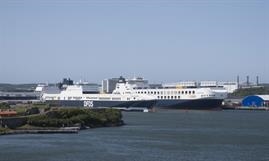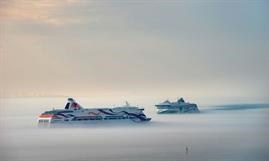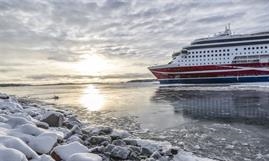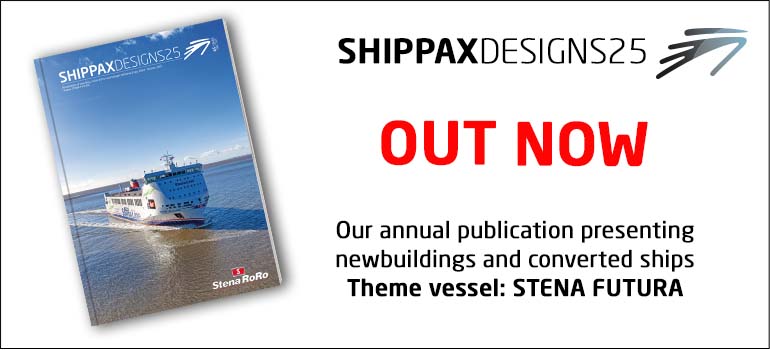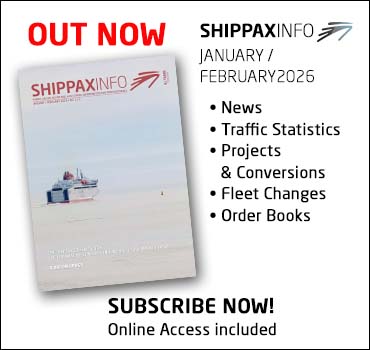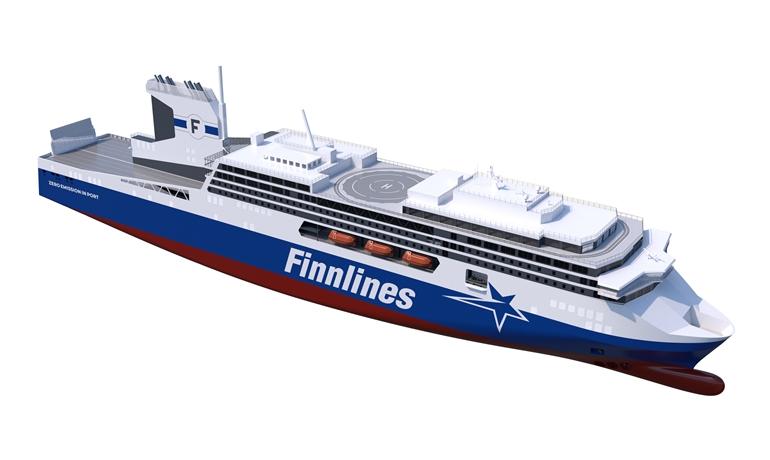
The three newbuilds for Finnlines will be 240 metres long, with a cargo capacity of 5,100 lane metres for rolling freight plus 90 cars, and accommodation in 320 cabins for up to 1,100 passengers.
Finnlines’ Financial review January–March 2025
FinanceThomas Doepel, President and CEO, in conjunction with the review
”The first quarter of the year was quite satisfactory. In 2024, Finnlines had to adapt its fleet to meet changed market conditions. By rationalising the fleet composition and by re-organising some of its freight services, Finnlines was able to improve its profitability. This combined with reduced debt and falling interest rates were the main drivers behind the significant result improvements.
The Finnlines Group's revenue in January–March 2025 amounted to EUR 166.0 (162.2 in 2024) million. Earnings before taxes, EBT, amounted to EUR 7.9 (0.4) million.
During the reporting period Finnlines transported 194,000 (184,000) cargo units, 18,000 (27,000) cars, and 297,000 (285,000) tonnes of non-unitised freight. In total, 165,000 (153,000) passengers travelled with us.
Shipping was included in the EU Emissions trading system in 2024 and in the FuelEU Maritime from January 2025. The trading system obligates shipping companies to buy emission allowances for ships' CO2 emissions and the FuelEU requires that fossil fuels should be gradually replaced with more expensive alternative fuels. The objective of these schemes is to tackle climate change and therefore extra charges are added on energy costs.
With higher energy costs, modern and energy efficient vessels, economies of scale and high capacity utilisation are key success factors to be able to offer affordable low or zero carbon transportation, something that our customers more and more demand today.
After the reporting period, the Grimaldi Group, Finnlines' owner, announced that the Group has ordered nine new ro-pax vessels, six to be deployed in the Mediterranean, and three, "the Hansa Superstar class", in the Baltic on the route between Helsinki and Travemünde. All ships will be equipped with engines capable of running on methanol, which will play an important part in our path towards net zero emission target.
The geopolitical atmosphere continues to be tense but there is some light in the tunnel. With hope for stability in Ukraine, we anticipate positive growth opportunities in Northern Europe. Germany's decision to relax its debt brake and invest EUR 500 billion in infrastructure will stimulate its economy. As the leading ro-ro and ro-pax company in the Baltic Sea area, offering up to 26 weekly departures between Finland and Germany and close to 40 weekly departures between Sweden and Germany, Finnlines is in pole position to capitalize on a German economy recovery."
Full report financial-review-q1_2025-eng-.pdf
maj 06 2025


